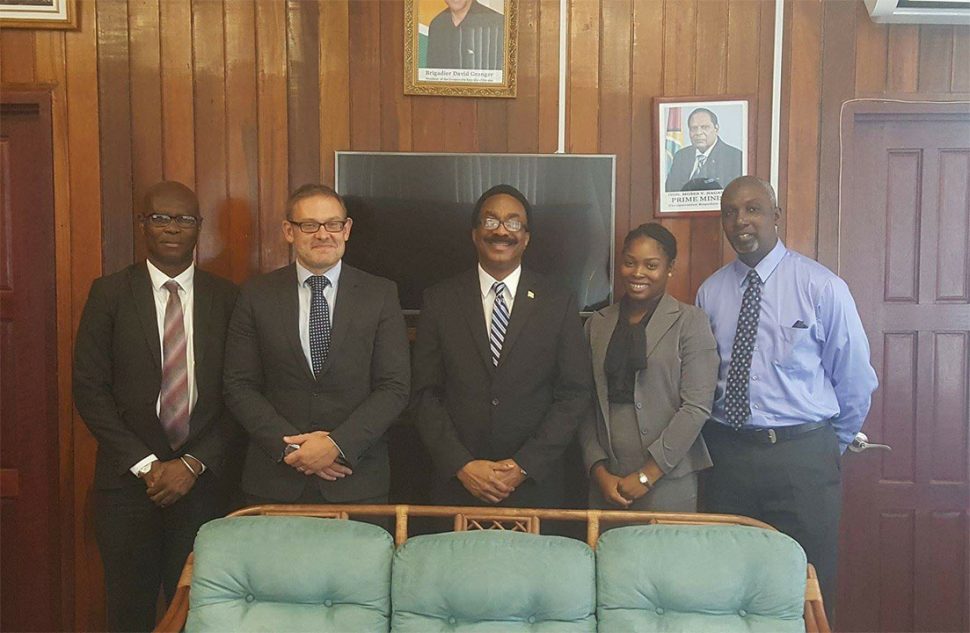Almost a year after former UK Prosecutor David Robinson arrived in Guyana to spearhead an anti-corruption project, there is no available information on what he is doing or has done thus far.
In fact, Attorney-General Basil Williams SC, who met Robinson shortly after his arrival, says he has no knowledge about his work.
“You will have to ask him,” Williams said when asked about Robinson’s work during a press conference last Monday.
The United Nations Office on Drugs and Crime (UNODC) advisor had handed a draft anti-corruption work plan to government in relation to the GUY24 project, which is aimed at supporting the prevention, investigation and prosecution of corruption soon after his arrival.
Williams, when asked whether he has been briefed on the GUY24 project, said he had met with Robinson initially. “..You’re asking a good question. We have our programme, we have been doing our anti-corruption sensitization throughout Guyana in the different regions. I can’t tell you about how Mr. Robinson’s programme is going… how it is being executed and such,” he said.
“…Don’t forget, he is with an independent body,” he added, when pressed on the issue.
The Ministry of Legal Affairs had announced Robinson’s presence in Guyana in a statement on September 10 last but did not mention that his arrival here was as a result of a proposal made in 2015.
In its statement, the ministry had described Robinson as a British advisor for UNODC. According to the statement, Robinson’s visit came at a time when he was preparing to spearhead the GUY24 project. At a meeting, the statement said, Robinson informed Williams that he has drafted an anti-corruption work plan, which sets out his planned activities to strengthen Guyana’s anti-corruption regime. This plan was to be reviewed by the government, the statement said, while adding that to execute the work plan Robinson will be collaborating with all anti-corruption agencies and stakeholders, including the Special Organised Crime Unit, the State Assets Recovery Agency and the Financial Intelligence Unit.
In November of that year Williams had disclosed that the draft work plan was shared with government and stakeholders. He said that it would be looked at and that government had not “made that determination [to accept] yet.”
The AG clarified that Robinson was here in an advisory capacity and would not be actively involved in the prosecution of corruption matters.
He had said too that the advisor was here within the UNODC’s remit to “look at corruption and would probably assist our approach. You know we have an anti-corruption drive.” He noted that it was the United Nations that has appointed him and as a result all information ought to be had from him.
UNODC Regional representative Amado Philip de Andres had told this newspaper that the body had delivered on its promise to appoint a prosecutor to deal with corruption matters in Guyana.
de Andres had said from his office in Panama that Robinson would be supporting the Guyanese authorities to “strengthen national capacities to fight …corruption and money laundering.”
Another UNODC official, Augusto Lavieri, had told Stabroek that Robinson was working with national counterparts in the implementation of a number of priority activities that need to be carried out before the end of the year.
The UNODC aims to assist member states in their struggle against illicit drugs, crime and terrorism.





